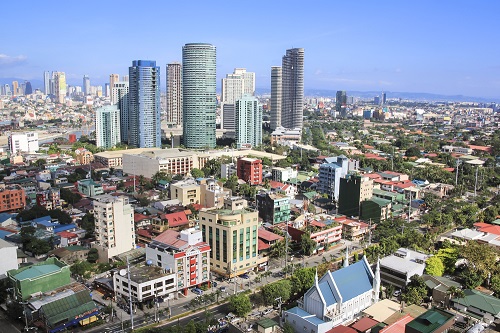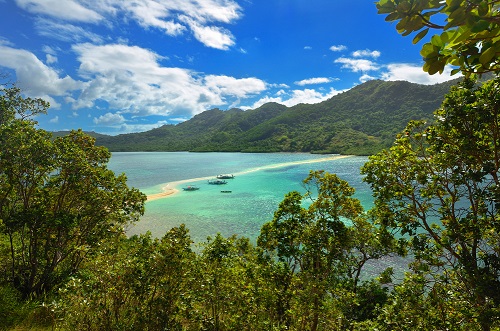The Philippines is a fascinating area to visit, whether as a tourist or as a potential expat looking for work. The country has a wide range of visas available, and which one you need will depend on the purpose of your trip, how long you intend to stay, and your nationality.
Will I need a visa?
The Philippines has visa-waiver agreements with a number of countries for short-stay entry. The length of your permitted stay will depend on your nationality. If you are from the EU, for instance, you will be entitled to remain in the country without a visa for 30 days.
If you are a British citizen, you can also enter the Philippines without a visa for an initial period of 30 days. Alternatively, you could get a tourist visa from the Philippine embassy, which allows an initial 59-day stay. The government is extending stays on this kind of visa for up to six months for some nationalities.
U.S. citizens planning to visit the Philippines for 30 days or less do not need a visa prior to travel, provided their U.S. passport is valid and they have a valid return ticket. However, for stays in excess of 30 days, U.S. citizens must either apply for a visa at their nearest Philippine consular establishment in the US prior to travel, or at the Bureau of Immigration upon arrival in the Philippines.
How do I apply for an entry visa?
If you are a British citizen and have a tourist visa, you can apply to extend your stay, at the offices of the Bureau of Immigration. You may need to demonstrate proof of travel.
Depending on your country of citizenship, you may need to apply for a Philippines visa at your local embassy or consulate. You will need to meet the necessary requirements and have your complete supporting documentation up to date. You may also be able to apply online, but this will depend on your nationality.

Long-stay visas
You can apply for a number of long-stay visas, including:
• Philippine work visa, which is issued to foreigners who will work for a Filipino company (we will look at this in more detail below)
• Philippine student visa, which is issued to foreigners who will pursue their studies in a Filipino educational institution
• Philippine spouse visa, which is issued to the spouses of Filipino citizens and/or their dependent children
• Philippine retirement visa, which is issued to foreigners who want to retire in the Philippines and have the necessary financial requirements to do so
Philippine long-stay visas are issued for six months to three years, depending on the type of visa you apply for and other determining factors, such as the duration of your work contract.
To apply for a long-stay visa, you will either need to contact your local diplomatic mission, or you can apply at the Bureau of Immigration in the Philippines if you are already in the country.
How much does it cost?
A single-entry visa will cost £25.
A six-month multiple-entry visa will cost £47.
A one-year multiple-entry visa will cost £70.
How long does it take?
Visa processing time is dependent on the applicant’s nationality and usually takes two to 10 business days. Processing can be faster if the applicant’s country has an existing visa agreement with the Philippines. For some applicants, evaluation may require a longer period of time.
What will I need to apply for a work visa?
Because of abuse in the special work permit (SWP) system, the government has tightened its visa regulations. Prior to this, foreigners in the Philippines on a tourist visa were able to apply for an SWP and work for six months. In practice, this led to workers taking up employment for the six months, then leaving the country, re-entering and re-applying. Hence, the government has now restricted SWPs to 15 designated categories, including journalism, temporary service work, entertainment, sports, academia and consultancy.
The Philippines currently has a booming online gaming industry, which mainly employs foreign personnel. Of the 138,000 foreigners working for offshore gaming operators (Pogo), 83,760 were issued SWPs. Under the new regulations, you will need to apply for a more stringent, longer-term permit, called the provisional work permit (PWP).
First, you must apply for an alien employment permit (AEP). This will allow you to work while your long-term permit is being processed, which can take several weeks. In order to apply, you will need to submit the following documents to the Department of Labour and Employment (DOLE):
• Notarised application form
• Letter of request
• Secretary’s certificate electing you to your new position (if you are a non-resident foreign national with elective positions)
• Passport (authenticated), with current visa
• Photocopy of mayor’s permit
• Photocopy of business permit
DOLE will then issue you with an AEP card, and you will be able to apply for a PWP, issued by the Bureau of Immigration (BI) for an initial three months. You can renew this for another three months if necessary, but will not be able to renew again after the six-month period has ended. You will need to submit the following documentation:
• A letter addressed to the commissioner from your prospective employer, with an undertaking to withhold and remit to the Bureau of Internal Revenue (BIR) taxes due on your income
• A CGAF (BI Form 2014-00-003 rev 0)
• A photocopy of your passport bio-page and latest admission, with valid authorised stay
• Proof of your valid Taxpayer Identification Number (TIN), if you have one
• Photocopy of your Alien Employment Permit (AEP), or an official receipt of your application for an AEP
Your employer may also need to submit some documentation, such as the company’s articles of incorporation, but their legal department will be able to sort this out from their end.
You will need to pay a fee, currently around 4040PHP (US$79).

You can also register for self-employment. If you have a company, you will need to consult the Securities and Exchange Commission, which has recently revised its incorporation guidelines, or the Department of Trade and Industry, if you are a sole proprietor. This, too, has recently revised its approach to start-ups in particular.
Bringing a pet into the Philippines
You can bring your pet into the country, but you will need to submit a health certificate from a registered vet. Your pet will also need to have had rabies vaccinations.

